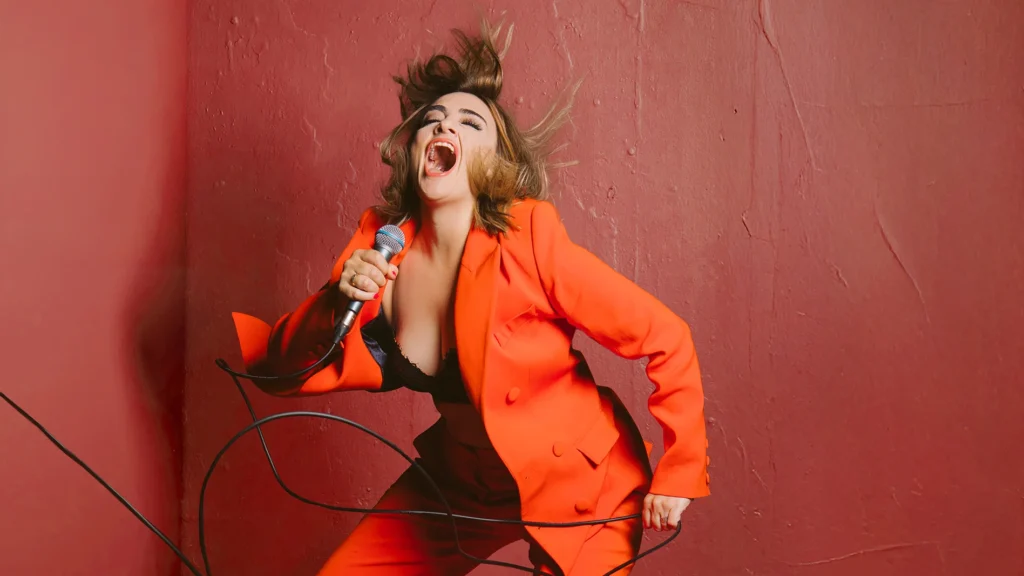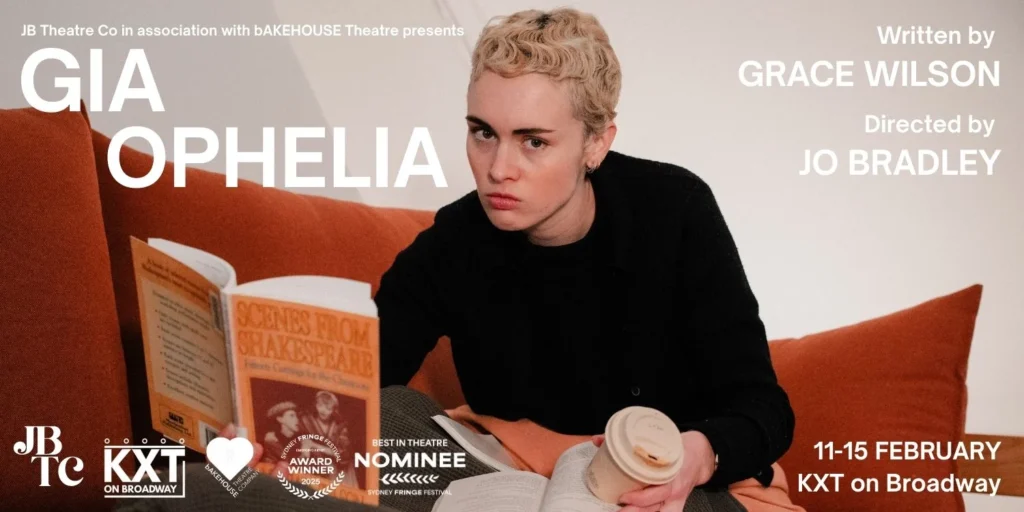
Sean Landis, the director of the Australian premiere of Cruise at Sydney’s KXT on Broadway, sat down with Theatre Thoughts to discuss the Olivier Award Winning script and how Fruit Box Theatre are bringing their version to the stage.
Backlit by the clubs of London’s Soho, Michael Spencer faces the music of his last night on Earth. Diagnosed with HIV in 1984, he’s told by doctors that he has just four years to live. Determined, he decides his doomsday will be his biggest party yet. Sweat mixes with tears, and final dances turn into farewells. There’s a midnight countdown to his death but Michael … survives. With the gift of life, how can he go on living?
Nominated for the Olivier Award for Best New Play in 2022 and now receiving its Australian premiere with community-led Fruit Box Theatre, Cruise is an intergenerational monologue spanning four decades and over 20 characters, celebrating queer nightlife and paying tribute to a generation lost to the AIDS crisis.
Sean Landis is a director and producer with a collaborative practice that prioritises and celebrates Queer storytelling. As the Co-Founder and Artistic Director of Fruit Box Theatre, he has led the development of nine original productions since their launch in 2022. Throughout our interview, Sean discusses the generations lost to the AIDS crises, and the importance of remembering Queer history. We get an insight into working with the cast of Cruiseand what the play has to say about the importance of storytelling and theatremaking.
Read the full interview below.
TT: Cruise explores deeply personal and historical themes around the AIDS crisis and queer nightlife. Why do you think it’s important to bring it to Australian audiences now?
Landis: I think this story is always important to tell. As humans, we understand our place in the world through references to others, and as young queer people, most of us grew up without older queer people showing us what aging could look like for us. We lost nearly an entire generation due to the AIDS crisis and we’re not really taught about what happened, why the government response was so poor around the world, and how our community rallied to support each other. Stories like Cruise help us remember our history, they help us understand our place in the world, and they teach us what it means to persevere as queer people.
TT: The play features an intergenerational monologue with over 20 characters. How does the production team approach creating a dynamic and engaging performance that captures these voices and their stories?
Landis: Our approach to creating a dynamic story has leant heavily on the richness of Jack Holden‘s text. These characters are so detailed, funny and moving, and we’ve worked incredibly hard to make them all shine. We started with Linda Nicholls-Gildey‘s vocal coaching and Jeremy Lloyd‘s movement direction to build a base understanding, and the rehearsal process has involved a lot of play as we dive deeper into all of these characters. We’ve also invited community consultants Wilfred Roach, Jonny Seymour and Helen Fraser into the rehearsal room at various points to help us flesh out the picture of these real people and what they lived through. The production and sound design by Chelsea Wheatley is rich with references and excitement, and the lighting design by Tom Hicks is a true spectacle. This entire team is with Fraser Crane on stage telling this story. It may be a one person play but it feels like an ensemble.
TT: Queer nightlife is a central element of Cruise. How has the creative process incorporated this vibrant and emotional world into the production, and what do you hope audiences take away from its depiction?
Landis: The team behind Cruise are not just your regular group of theatremakers. We encompass dancers, club performers and nightlife experts. From the jump, we have sought to infuse the electric energy of a 2am club performance into this theatrical piece. I want people to leave this show more aware of their history but also ready to dance. These characters teach us that even in the face of the most dire odds, joy, sexiness and fun can, and should, still be found. It’s the queer spirit, and I’m honoured to continue that legacy.
TT: This is the Australian premiere of Cruise. How has Fruit Box Theatre approached adapting this Olivier-nominated play for local audiences, and what unique elements can viewers expect from this production?
Landis: Cruise has never been presented on a scale like KXT on Broadway. With this many characters and this many locations, we really had to be creative to make sure the complexity of the story could be translated without a huge set or really dramatic design elements. What we’ve landed on is something that feels uniquely intimate and is an entirely different product than a West End play. We haven’t changed the text. It is still very British, but we really are doing our own thing.
Cruise plays at KXT from Wednesday 12th February. You can book your tickets here.
Director Sean Landis with Fraser Morrison
Production / Sound Designer Chelsea Wheatley; Assistant Production Designer Lucy Doherty; Lighting Designer Tom Hicks; Accent / Dialect Coach Linda Nicholls-Gidley; Movement Director Jeremy Lloyd
Assistant Stage Manager Alice Chao; Cinematographer Anna McGirr; Photographer Abraham de Souza; Community Consultants Jonny Seymour and Wilfred Roach
Producer Hana Truban; Assistant Producer Louis Walker





